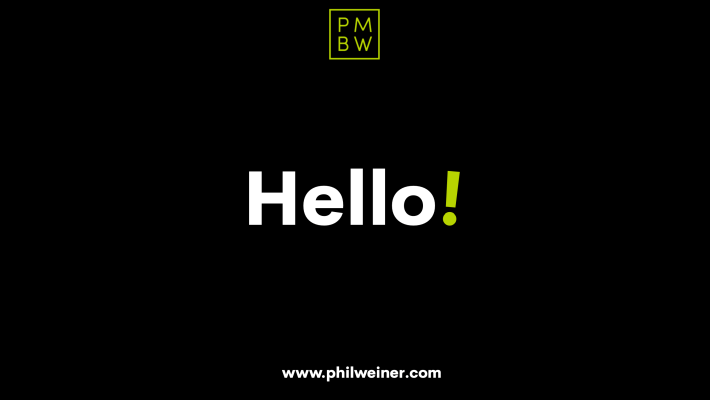As a former entrepreneur turned independent designer, Phil Weiner gets the startup life. He often describes himself as a second co-founder for his clients, unafraid of 2AM phone calls and prepping pitch decks for investors. He’s a “full stack” creative director based in Oakland, CA with a passion for tackling cultural tension. Learn more about why design runs in his blood, his branding philosophy, and more.
On his ideal client:
“There are certain values that we have to have in line. The number one value is that they don’t view their people as resources, they view them as people. If I start to get the inkling that a founder isn’t necessarily great at managing their teams and their people, empowering them or removing obstacles, it’s probably going to be difficult for us to figure out customer empathy. Number two, design is an investment, not an expense.”
“Phil has worked with us to create and shape a number of impact brands like 100% Human at Work – and hundreds of visual presentations that have inspired hundreds of entrepreneurs to do something bigger in their lives.” Jean Oelwang, London, UK, CEO, Virgin Unite
On the power of branding:
“I get to be able to shape culture because that’s what brands are able to do. You can build a really great product and introduce it into the market and that’ll have it’s own life cycle until trends change. Brands can last a lifetime. I think that’s the only way that I can make a mark on the world, even if my name isn’t on the company. If it’s contributing to the brand, I’ve scaled my potential impact in the world.”
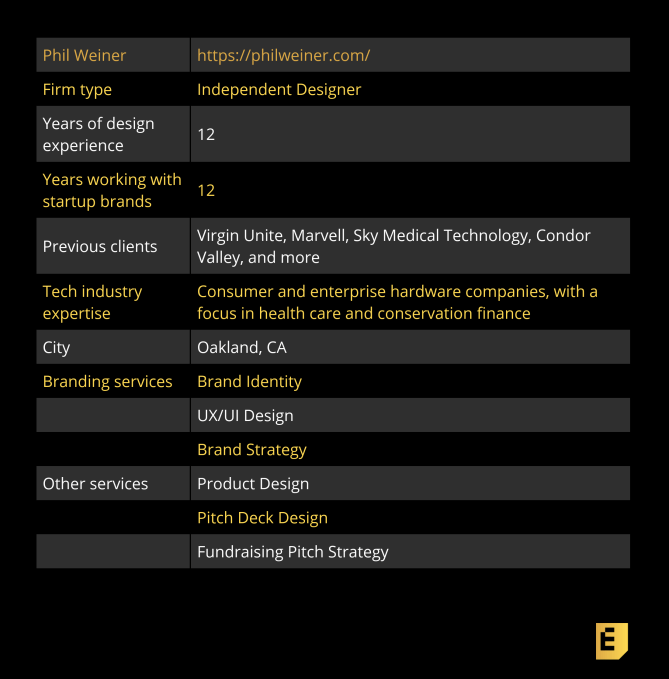
Below, you’ll find the rest of the founder reviews, the full interview, and more details like pricing and fee structures. This profile is part of our ongoing series covering startup brand designers and agencies with whom founders love to work, based on this survey and our own research. The survey is open indefinitely, so please fill it out if you haven’t already.
The Interview
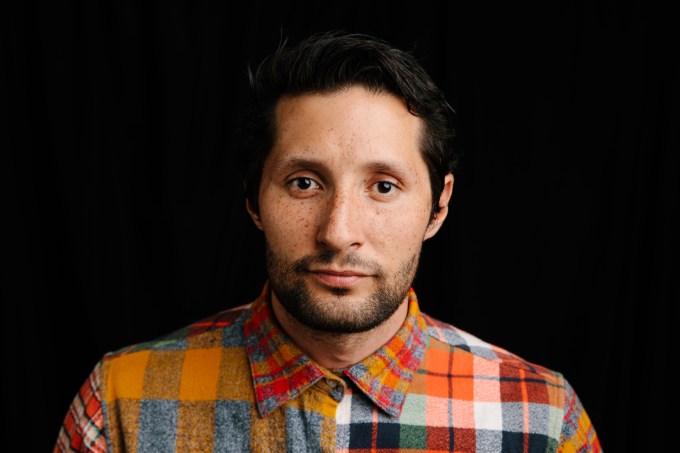
Yvonne Leow: Tell me about your background. How did you get into design and branding?
Phil Weiner: So I actually didn’t study design. I’m self-taught designer. I come from a pretty cool line of designers. My grandfather drew the “I Love Lucy” heart and did album artwork for Motown Records, and typography. My mom’s also a graphic designer. She’s been with The Washington Post and The NY Daily News for years. She just retired.
The first thing they actually told me was “Don’t go to school for design. Go to school for business. Because if you don’t understand business, you don’t understand design.” So I went to school for econ and math. I studied design in “the streets”. I started my first company when I was 21 years old. It was an early version of Hired.com. When you don’t have any money, you have to do things yourself and be creative so I learned everything from basically failing. I know a lot about what startups are going through, whether it’s designing a pitch deck, selling a product, A/B testing, or trying to convert traffic on a webpage. I ended up selling that first company, which was a recruiting business that was based on scraping Linkedin for what we call, “The most placeable candidate.”
Over time, I built various consumer product companies, and then freelancing was just a natural progression between ventures. Once you go to the founder path everybody knows that you have an itch and the bug. They’re not gonna necessarily hire you full-time. So, it was a series of going and working on product teams and then when that product would get out of the jungle and onto the dirt road, you move onto something else.
Yvonne Leow: Cool. What do you enjoy about working with early stage companies?
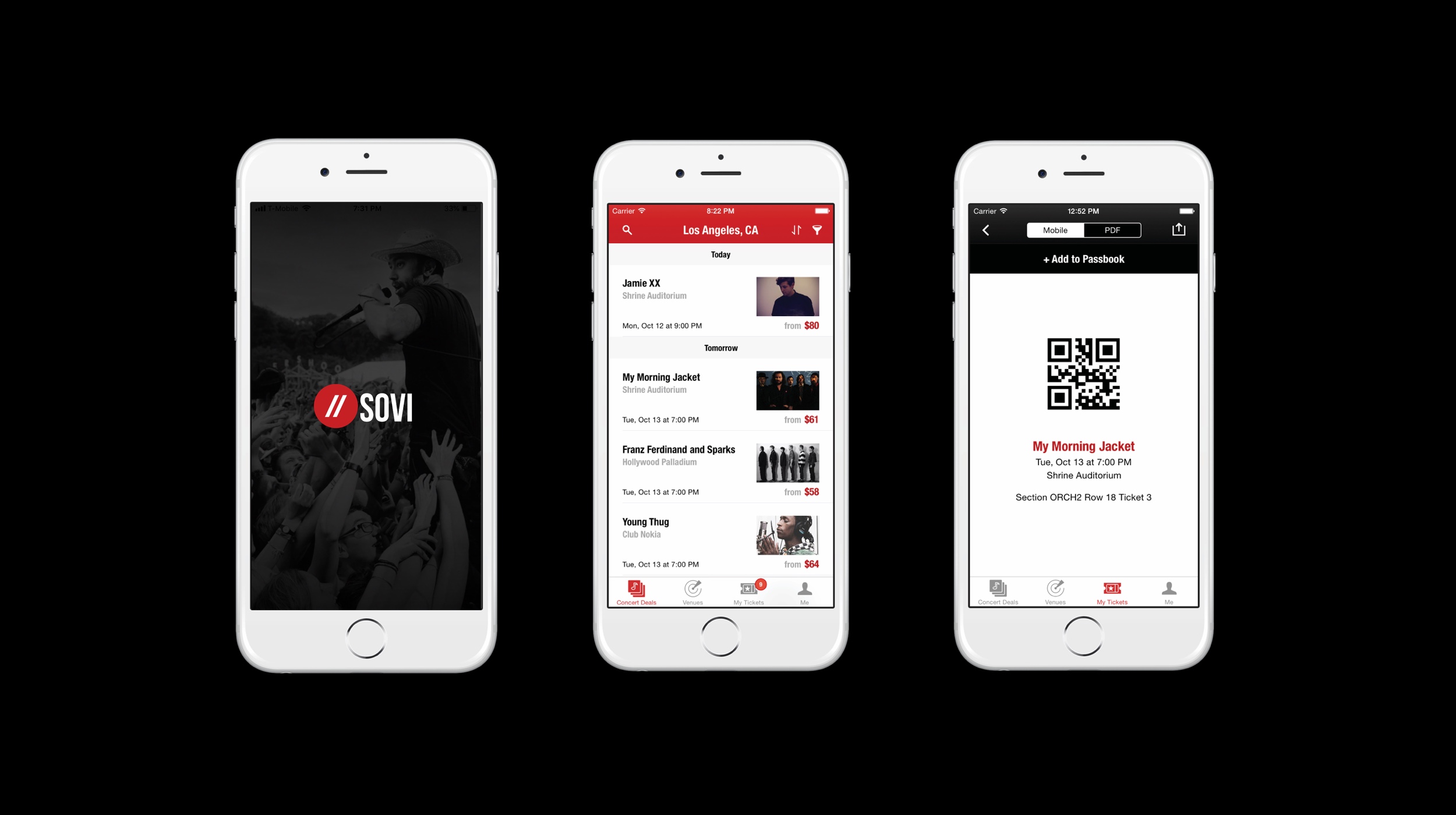
Phil Weiner: Yea, I like to get involved at the earliest stage of a project. This way, I can help communicate exactly what makes the company unique and different to the consumer. That’s called positioning. Positioning is very important. And oftentimes when I say no to a potential client it’s because the product is well into the market, especially if it’s a hardware product. Digital products are a bit easier to reposition, but if they haven’t necessarily built the features or missed one key feature, it’s hard to turn back.
So I tend to focus on positioning, brand development, which is sort of building a purpose around the brand to make sure it’s culturally relevant so that when they do start marketing, you’ve lit the powder keg that is cultural tension and can help them find the visual identity and the voice to turn it into actual color, typography, and photography.
I’ve also run this boot camp for early stage founders that are getting ready for a demo day or raising their first round of capital or follow up capital. I also tend to work with much larger companies that are focused on positioning as it relates to sales enablement product launches.
Yvonne Leow: Can you tell me a little bit about your ideal client?
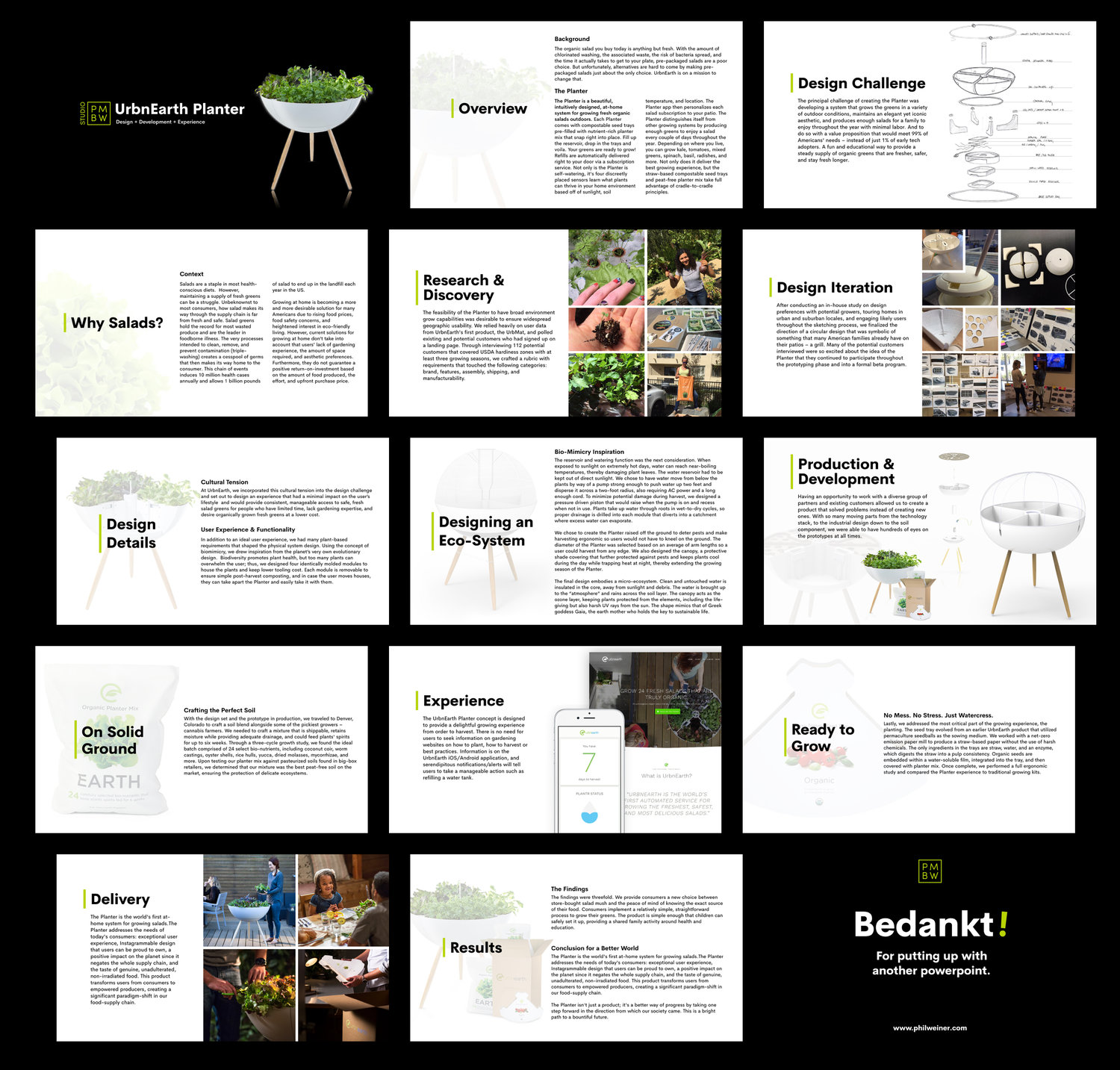
Phil Weiner: The most ideal client is someone that’s actually creating and shaping consumer behavior. They have an impact on our culture at-large. Whether it’s socioeconomic or environmental, I think we’ve got some serious problems ahead in the next 20 years. The companies that are addressing those issues are a lot easier to work with because we’re speaking the same language. We’re aligned on building impact into the product itself and that makes them more culturally relevant, which means that the results end up being bigger.
Yvonne Leow: What’s it like as soon as clients start embarking on the branding journey with you?
Phil Weiner: The first step is getting aligned on outcomes: how our communication is going to work, who’s going to tackle what. The next thing is figuring out which stakeholders are involved, and that will allow us to basically figure out exactly who we’re talking to.
When it comes to positioning, I will work with the founder one-on-one to determine who the target audience is. We’ll focus on the exact key benefit, product category, and differentiation. That’ll lead to an internal statement that we can use for almost all creative. Whether we have to name a new product or name a company, we know exactly who is the one person we’re talking to. For a later stage company, this could be multiple products so I have to figure that out for each product.
If we’re working on a pitch deck, we’ll actually address all of the burning questions an investor will have. This way founders don’t burn any bridges and we figure out that stuff upfront. We’ll come up with all of the potential copy before I even lay a single color on a pixel. By the time we actually get to high fidelity designs, we’ve already done the work of managing expectations and getting feedback from stakeholders.
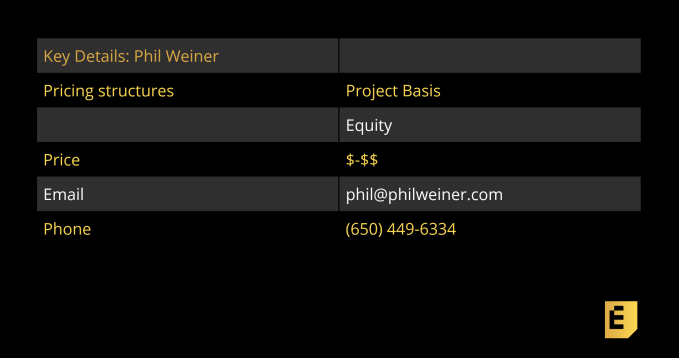
Yvonne Leow: Awesome. Do you continue working with companies after you’ve developed their brands?
Phil Weiner: Typically, yes. A lot of the companies that I work with nowadays are not seen as an expense, but an investment. They say I’m acting like their second co-founder. If they’re worried about a pitch, a product launch, or the direction the company’s going, I’m on the phone with them if it’s midnight or 2AM. I kind of become a coach, like a therapist or a second part of the brain. When they have no one else to talk to, they’re talking to me. Naturally, I can’t scale my time as much as I can scale a product so I have to be very selective about who I’m working with and whether we can build a long term partnership.
There are certain values that we have to have in line. The number one value is that they don’t view their people as resources, they view them as people. If I start to get the inkling that a founder isn’t necessarily great at managing their teams and their people, empowering them or removing obstacles, it’s probably going to be difficult for us to figure out customer empathy.
The other thing is that they’re investing in design for the right reason. So, for example, if a founder comes to me and says “We want a new logo.” My first question would be “Why do you want a new logo?” And if it’s “Just because we want a new logo,” then we’re probably not a good fit. Instead, they could say we want to create tangible outcomes to get a sense of what the customer problem is, or we find out, “Hey you don’t need a new logo. You need a website.” If the person’s very flexible then working together is probably going to be really easy to collaborate.
Yvonne Leow: Got it. What’s been the most challenging project you’ve worked on and how did it end up?
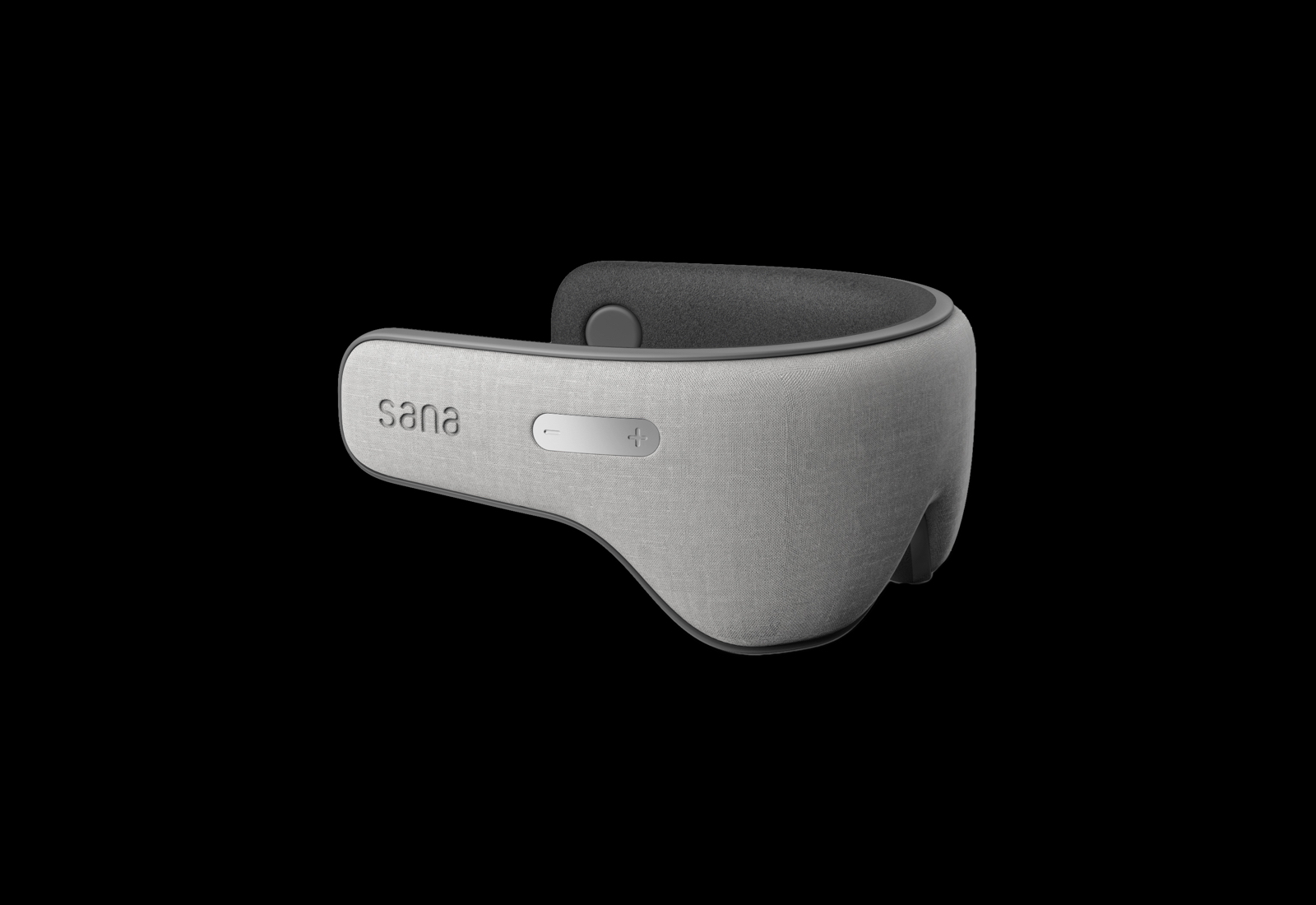
Phil Weiner: One of the most challenging ones was working with a hardware company called Sana.io. It’s a great business. It’s a health medtech company that creates neuromodulation technology for chronic pain relief. The founder had been working on the company for almost 12 years, and he invented the product to essentially solve his own chronic pain problem. But over the years, he had positioned his product for sleep. They were up against the clock in terms of runway and we had to completely reposition the entire company, amidst a fundraising round, with existing investors on board. We helped them with their investor raise, which allowed them to add people to the team. It’s hard to pinpoint every little thing because we did web, marketing, the repositioning of the brand, the identity, the voice, even his press positioning. The second co-founder mentality really kicked in.
They were positioned for sleep, but now they’re positioned for chronic pain. They’ve since manufactured their first units. They won, I think, six different startup competitions in the medical space including $350,000 in non-dilutable funding from MedTech Innovator. They’re about to start undergoing FDA trials. They just finished a 75 person study for pain, and another successful study for opioid use disorder. They’ve raised seven million dollars in capital and they’re probably going to launch their product by the end of this year. This is all in like less than two years.
Yvonne Leow: It sounds like you’re a jack of all trades, but are you drawn to any particular expertise or industry?
Phil Weiner: I’m definitely a generalist. Anytime someone’s in a creative director position, they’ve got to be full-stack. You’ve got to be able to produce videos as well as the positioning and building a comms roadmap. For things I’m not good at, I work with people like Melissa Bolin, a great comms strategist, who has worked for companies like AMEX and Marriott.
Consumer is the number one vertical in my heart, whether that’s a product, digital or service. Number two is enterprise technology: IOT products, or hardware companies that I’ve built myself. I’m also focused on health care, specifically digital therapeutics, as well as med tech. Finally, a personal passion of mine is conservation finance. I’ve worked with a lot of conservation ecotourism conservation projects like Condor Valley in and around South America.
Yvonne Leow: What do you think are some common founder mistakes when it comes to branding?
Phil Weiner: The first mistake is not understanding exactly what branding is. Most people think a brand is “I just need to fill out this visual guide and hand it off to a designer.” When in reality it’s a gut feeling that consumers have about your brand. Marketing is basically you yelling, “Hey look, I’m really good in bed.” In advertising, if you do it over the phone it’s telemarketing. If you get a PR person to do it, the person is basically saying, “Hey this guy is really good in bed, trust us.” And then a newspaper prints a report on him. But if somebody comes up to you and says, “Hey I hear you’re really good in bed.” Then, in that exact situation, you’ve built a brand. You already have a reputation. Branding is everything from the product design to your customer service. Everything you do is brand itself so it’s not just one little thing that’s gonna turn everything over.
I think some of the other mistakes is realizing that it’s not really about your product that matters, it’s why you’re doing it that’s most important. It’s about building trust based on why you’re doing it, and then what you do and then how you do it.
Yvonne Leow: What keeps you in this world of branding and design?
Phil Weiner: I get to be able to shape culture because that’s what brands are able to do. You can build a really great product and introduce it into the market and that’ll have it’s own life cycle until trends change. Brands can last a lifetime. I think that’s the only way that I can make a mark on the world, even if my name isn’t on the company. If it’s contributing to the brand, I’ve scaled my potential impact in the world.
Yvonne Leow: That’s awesome. Last question: What’s your pricing structure for startups?
Phil Weiner: I don’t price based on time nor do I have a daily rate or a rate in general. So what I do when I put together pricing is I have a conversation with the client about value and what their outcomes are. I come back to them literally with an e-mail, I don’t have a really well designed proposal that’s 10 pages long, that says, “This is the outcomes that you’re expecting, this is the price.” And typically my prices look really cheap compared to the outcomes. That also includes working with them on an unlimited revision basis to make sure we get to the exact outcome. I build in enough time to talk to them at 2AM in the morning. And ultimately, some of the things that they value, you can’t price. If the founder needs confidence, I can’t price that.
I often take equity in startups, which typically comes in the form of warrants. It allow founders to give equity or the right to purchase equity at a given price, even if it’s 10, 15 years down the road. It’s really flexible and you don’t have to issue options in your options pool, but it allows the person you’re working with to also share in the value and be incentivized to be like, “Hey, I know I said I would only do two or three revisions, but like I wanna get this done. I’m gonna work overnight to get this out, because you’ve got a product launch.” And if someone comes to you down the road and says, “Hey, can you talk to some of the designers on my team to catch them up to speed.” That’s a no brainer. Instead of “Hey I got to figure out how to price this, or I don’t have time.” If I have equity in the business, I’m incentivized to continue to provide value for the company in the long term.
Founder Recommendations
“Phil takes time to act as a virtual co-founder; not only is he master of the art of brand positioning by (re)living the founder narrative, he is on-call when you need him. He designs front-facing for consumers but also designs the best damn Pitch Deck for investors. When was the last time your designer doubled as an experienced fundraiser?” – Chris Tan, Hercules, CA, Chief Gelato Officer, Naia
“They created a great investor presentation with quality visuals, and helped to refine the messaging and story for maximum impact.” – James Carpenter, Nottingham, UK, CEO at SurePulse Medical Limited
“Phil worked with a number of companies (about 6) under my purview and completely revamped their pitch decks to include their brand identity. His contribution was significant in that he was given barebones materials and essentially created amazing decks and brands for these companies. I have worked with 100s of startups and have yet to see someone with this skillset.” – Lance Black, Houston, TX, Associate Director, TMCx
“Phil gets the story right. As entrepreneurs we get focused on our solutions, and Phil was awesome at working out how we connect with what patients actually need, and know they need. Then ultimately putting that into design deliverables that helped us attract investors and clinical partners.” – Richard Hanbury, Boulder, CO, Founder, SANA Health, Inc.
“The most important quality in finding an agency or person is their ability to listen. Phil listens, Phil researches, Phil delivers! He creates visuals that tell your story, he writes soundbites that get attention, he takes your messaging to a much higher level. All of these professional qualities roll up into your presentations and communications, making you significantly more marketable. Phil created a deck for us that blew us away because of the graphics he chose, the titles he used, and the order he arranged the slides–it was powerful. We are a better company, better positioned and gaining traction because of Phil Weiner and his team.” – Eileen Weisman, Houston, TX, Chief, Administrative Services, Vax-Immune
“A holistic understanding of local Northwest Argentinian environment, coaching and streamlining of our local enterprises. He has team spirit, knowledge about how to impose brand in market, huge professional environment, holistic understanding.” – Conservation expert in Argentina
“A very unique ability to distill products and services in a very difficult area, namely quantum technology. Being able to come up with viable market and product strategies for a technology base that many have heard of but almost nobody understands.” – Simon Devitt, Sydney, Australia, President at h-bar: Quantum Consultants
“Great at visual storytelling.” – Geoff Birkett, Philadelphia, PA. Chief Commercial and Development Officer, Sana Health Inc.
“Phil provided my company with a brand, a vision, and a DNA that propelled us to market and later to acquisition.” – Director of Sales in Venice, CA
“Translating a fairly technical / economic / wonky story into something that was far more accessible to the population we were working with.” – Principal policy researcher in Snowmass, CO
“Phil has a phenomenal ability to bring out the personality and true identity of an organization all while keeping a team on track and shuffling through tons of data to identify a message that speaks directly to the organization. I have worked with Phil as an advisor to a long existing charity and with a small start up NGO. Both times he was able to adapt to the organization and provide exactly what was needed. With the start up, he was able to push the team to move past the “what we do” into “who we are”. He has an uncanny ability to understand an organizations strengths and push them to work toward a higher level of understanding that themselves. Over the course of working together, we have worked on positioning, brand development, fundraising and naming for a stealth startup.” – Ellen Palmer, Washington D.C., Consultant, CINTOC
“He helped us find our voice and gave us platform through which to engage with our stakeholders, more meaningfully understanding ourselves and them. He gave us the confidence to tell our story, developed the tools to do it, while also teaching us to fish, so to speak, not just eat for a day as it relates to story telling and positioning. Through his work we went from a world of feeling misunderstood to a place of abundance and clarity. We went from having a hard time raising capital, to finding the right investors who share our values, as a result, we were able to fully close out our capital round. Investors are only one of our stakeholders, and he helped equally so the framing and tools across all of the stakeholders to whom we are responsible, customers, co-creators, Earth, Communities and investors.” – John-Paul Maxfield, Denver, CO, Founder and President, Waste Farmers
“He understood our complex organization and came up with a brilliant new brand and brand design.” – Gretchen Peters, Washington D.C., Executive Director, stealth startup
“Phil brings a strategic longer term vision to our work at Condor Valley. He is always stretching us to consider both outside and inside the box.” – Hank Bannister, SF, Chairman, Condor Valley LLC
“Two things – deep understanding of the needs of the investor audience and an ability to simplify core messages without losing their essence.” – Andrew Thelwell, High Wycombe, UK, Chief Commercial Officer, Firstkind Limited
“Helped design our brand and brand narrative.” – Co-founder and CEO in Oakland
